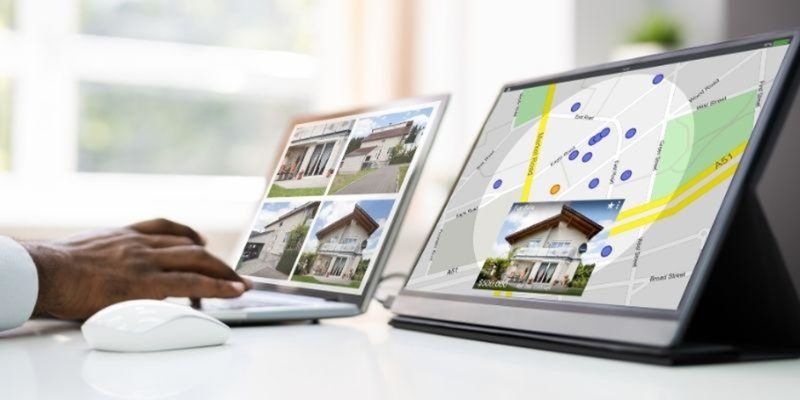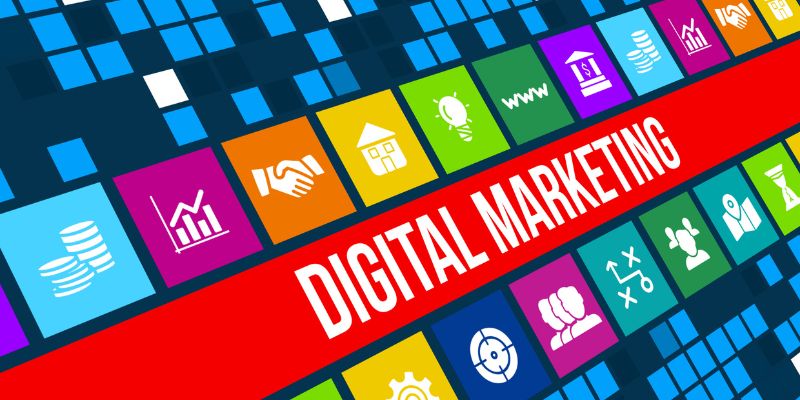In the rapidly evolving landscape of the real estate industry in the UAE, the integration of digital marketing has become a necessity.
Digital marketing offers various perks that redefine how real estate professionals operate, enhancing the overall experience for buyers and sellers. This is why you need to understand how digital marketing will transform the real estate industry in the future.
As a real estate broker, digital tools enable you to showcase properties to potential customers through virtual tours, revolutionizing traditional property viewing.
This shift aligns seamlessly with the evolving preferences of modern consumers who increasingly rely on digital platforms for their property searches.
Moreover, the transformation extends beyond property exploration. Digital marketing streamlines the intricate paperwork processes, eliminating the need for in-person office visits.
This shift has been prompted by consumers embracing a more digital-centric approach, opting for the ease and accessibility of online tools and applications.
In this blog, we will explore how digital marketing is reshaping the real estate sector in the UAE. Join us as we explore digital transformation’s impact, benefits, and prospects in the UAE’s real estate industry.
Top 7 Ways That Digital Marketing Will Change the Real Estate Industry
The digital revolution is fundamentally reshaping the real estate sector. Here, we dissect the seven key ways digital marketing is at the forefront of this transformation, enhancing how real estate professionals connect with their audience.
- Visibility
- Chatbots
- Social Advertising Campaigns for Real Estate
- Marketing Automation
- Influencer Marketing
- Blockchain Technology
- Virtual Tours
Let’s explore them in detail to understand how digital marketing is not merely a tool but a transformative force, reshaping the real estate industry’s landscape.
Use the full extent of marketing by enrolling in a Real Estate Digital Marketing course!
1. Visibility
Digital visibility in the real estate landscape is no longer an optional strategy; it’s necessary. Real estate professionals strategically position themselves on digital platforms to enhance their presence and expedite property sales.
Platforms like Facebook, Google, LinkedIn, and Twitter are not just avenues for marketing; they serve as trust-building tools. Being visible on these platforms attracts potential buyers and establishes credibility.
Real estate entities engaging in digital visibility experience faster transactions than their counterparts relying on traditional methods. In a world where the first point of contact often occurs online, visibility becomes a competitive edge.
2. Chatbots
The rise of chatbots in the real estate sector is more than a trend; it’s a paradigm shift. With an anticipated annual growth rate exceeding 24%, chatbots are becoming indispensable in customer service, sign-ups, and lead generation.
These conversational agents streamline communication, providing instant responses and assistance.
In a 24/7 digital world, where customers expect immediate interactions, chatbots enhance user experience and contribute to operational efficiency.
Their versatility spans from answering queries about property details to facilitating the initial stages of the customer journey, making them a valuable asset in the digital toolkit of real estate professionals.
3. Social Advertising Campaigns for Real Estate
The prominence of social media in daily life is reshaping how real estate entities approach advertising. The extensive engagement on platforms like Facebook, Instagram, Twitter, and LinkedIn makes them fertile grounds for reaching potential buyers.
Social advertising campaigns have become the preferred choice for lead generation and branding.
Users spend significant amounts of time scrolling through feeds, presenting an opportunity for real estate professionals to showcase their properties in an environment where their audience is already active.
This shift aligns with the evolving user behavior patterns, acknowledging that the modern buyer is more likely to be found on social media than through traditional channels.
4. Marketing Automation
Efficiency is the cornerstone of marketing automation in the real estate sector. The ability to automate repetitive tasks, from running email campaigns to scraping data for targeted campaigns, allows real estate professionals to achieve more in less time.
Lead generation, a critical aspect of the real estate business, benefits significantly from automation systems. These systems expedite processes and ensure that marketing efforts are precise and targeted.
In a competitive landscape where timely communication and strategic outreach are paramount, marketing automation emerges as a critical differentiator. It enables real estate entities to maintain a consistent and influential presence in the digital arena.
5. Influencer Marketing
In the age of digital influencers, marketing strategies have evolved to leverage the reach and authenticity these influencers bring. Identifying influencers who align with the target audience and partnering with them can significantly amplify the reach of real estate campaigns.
Influencers, with their dedicated following, have the power to introduce real estate entities to a broader audience. The use of relevant hashtags further enhances the recall value of campaigns.
Influencer marketing goes beyond conventional advertising; it taps into the trust that influencers have built with their audience. This form of marketing is not just about selling properties; it’s about creating a connection and narrative that resonates with potential buyers.
6. Blockchain Technology
Blockchain technology is ushering in a new era of transparency and efficiency in real estate transactions. Its impact extends beyond being a mere technological innovation; it’s a transformative force that has the potential to reshape how property transactions occur.
By providing a decentralized and secure framework, blockchain reduces reliance on intermediaries, lowering transaction costs. The implications of this technology are profound, offering a transparent and efficient way for buyers and sellers to engage in property transactions.
The shift towards blockchain is not just a technological upgrade; it’s a fundamental change in how trust and security are established in real estate dealings.
7. Virtual Tours
Virtual tours have become a cornerstone in the real estate industry, especially in global events like the COVID-19 pandemic.
Offering a realistic and immersive walkthrough of properties, virtual tours empower potential buyers to explore every nook and cranny of a property remotely. This becomes particularly crucial when in-person showings and open houses are constrained.
Virtual tours solve the challenges of physical restrictions, allowing real estate professionals to showcase their properties effectively. The interactive nature of virtual tours goes beyond what static images or descriptions can achieve.
It provides a dynamic and engaging experience for potential buyers, allowing them to decide which part of a property they want to examine closely and from what angle.
In a digital age where visual experiences matter, virtual tours have emerged as a powerful tool for real estate professionals seeking to bridge the gap between online exploration and real-world decision-making.
Conclusion
As the real estate industry in the UAE is booming, it offers ample opportunities to make your mark in this competitive sector. You must understand how digital marketing will transform the real estate industry.
The strategic adoption of digital tools is fundamental for real estate professionals aiming to thrive in a competitive market.
From enhancing visibility on platforms like Facebook, Google, LinkedIn, and Twitter to leveraging the power of chatbots for efficient customer service, the paradigm shift is evident.
Social advertising campaigns have become the go-to method for lead generation and branding, aligning with the patterns of modern buyer behavior on platforms like Instagram and Twitter.
Marketing automation systems streamline operations, ensure precision in outreach efforts, and expedite critical processes like lead generation. The rise of influencer marketing is tapping into the trust and reach that influencers bring, creating connections beyond conventional advertising.
Blockchain technology redefines transparency and efficiency in real estate transactions, reducing reliance on intermediaries and lowering transaction costs.
For those looking to navigate the complexities of this digital shift and maximize their real estate potential, ThinkProp offers comprehensive real estate training programs.
Our courses are designed to equip professionals with the knowledge and skills needed to excel in the dynamic world of real estate.









